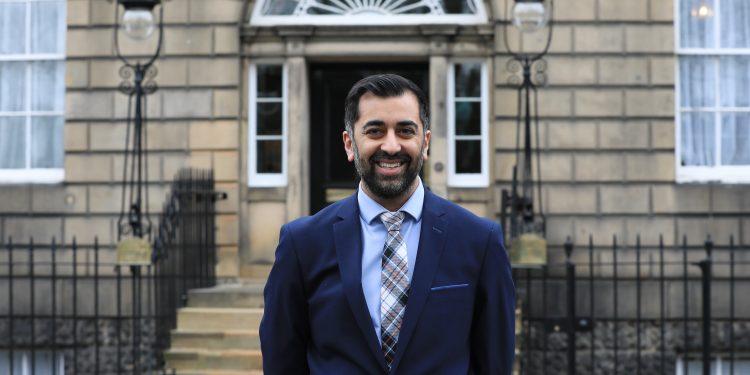The Scottish National Party (SNP) is preparing to center its campaign for the next UK general election on the issue of independence, announced First Minister Humza Yousaf. Speaking at a conference of Scotland’s governing party in Dundee, Yousaf stated that if the SNP emerges victorious in the election, it would initiate negotiations with the UK government to facilitate Scotland’s transition to an independent nation.
Yousaf’s remarks come at a time when public support for the SNP has dwindled following the arrest of former leader and first minister Nicola Sturgeon, a prominent figure in the independence movement in recent years. The Dundee conference marks the first in-person gathering since Yousaf, aged 38, assumed leadership in March, coinciding with a significant decline in the party’s popularity.
Sturgeon, who came to power after the unsuccessful independence referendum in 2014, unexpectedly announced her resignation in February, citing a lack of “energy” to continue. She was subsequently arrested and interviewed by police earlier this month regarding allegations of mishandling SNP finances. Sturgeon’s husband, the party’s former chief executive, had also been detained but both have since been released without charge, maintaining their innocence.
The SNP has been the dominant force in Scottish politics for nearly two decades, currently holding 64 seats in the Scottish Parliament out of a total of 129. It governs in coalition with the pro-independence Greens. Moreover, the SNP represents 48 out of Scotland’s 59 constituencies in the UK Parliament in London. However, recent polls indicate a sharp decline in support for the party in the wake of the funding scandal.
A recent YouGov survey suggests that the SNP would lose a significant number of seats if a general election were held now, with nearly half of its seats at risk. The Labour Party, advocating for Scotland to remain part of the UK alongside England, Wales, and Northern Ireland, would gain 23 seats, bringing their tally in Scotland to 24. The Scottish Conservatives and the Liberal Democrats, also pro-union parties, would each secure four seats, according to the poll.
While the SNP’s popularity has waned, support for independence has remained relatively steady, presenting a complex situation. Polling expert John Curtice highlighted that the level of support for independence stands at around 48%, with Scotland deeply divided on the issue.
The UK government maintains that the independence question was settled by the 2014 referendum, declaring it a once-in-a-generation event. However, Sturgeon revived the issue following the Brexit vote in 2016, where a majority of Scots voted to remain in the EU while the overall UK majority favored leaving. Sturgeon has consistently pressed UK prime ministers to allow another independence referendum, but her requests have been rejected. In November 2022, the UK Supreme Court ruled against the Scottish government’s attempt to hold another plebiscite, asserting that the authority to do so rests solely with the UK government.
Sturgeon has stated that the next UK general election would serve as a “de facto referendum” on Scotland’s separation after more than 300 years. Yousaf is expected to continue this approach, avoiding direct mention of the SNP’s funding scandal in his speech and referring only to “a few challenges” during the initial 12 weeks of his tenure.



























